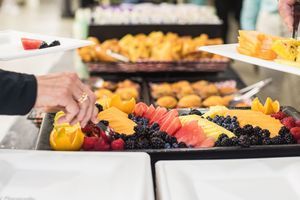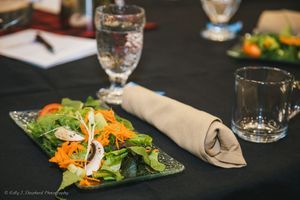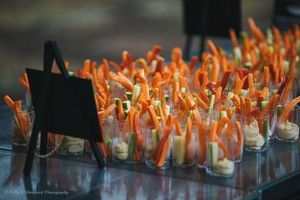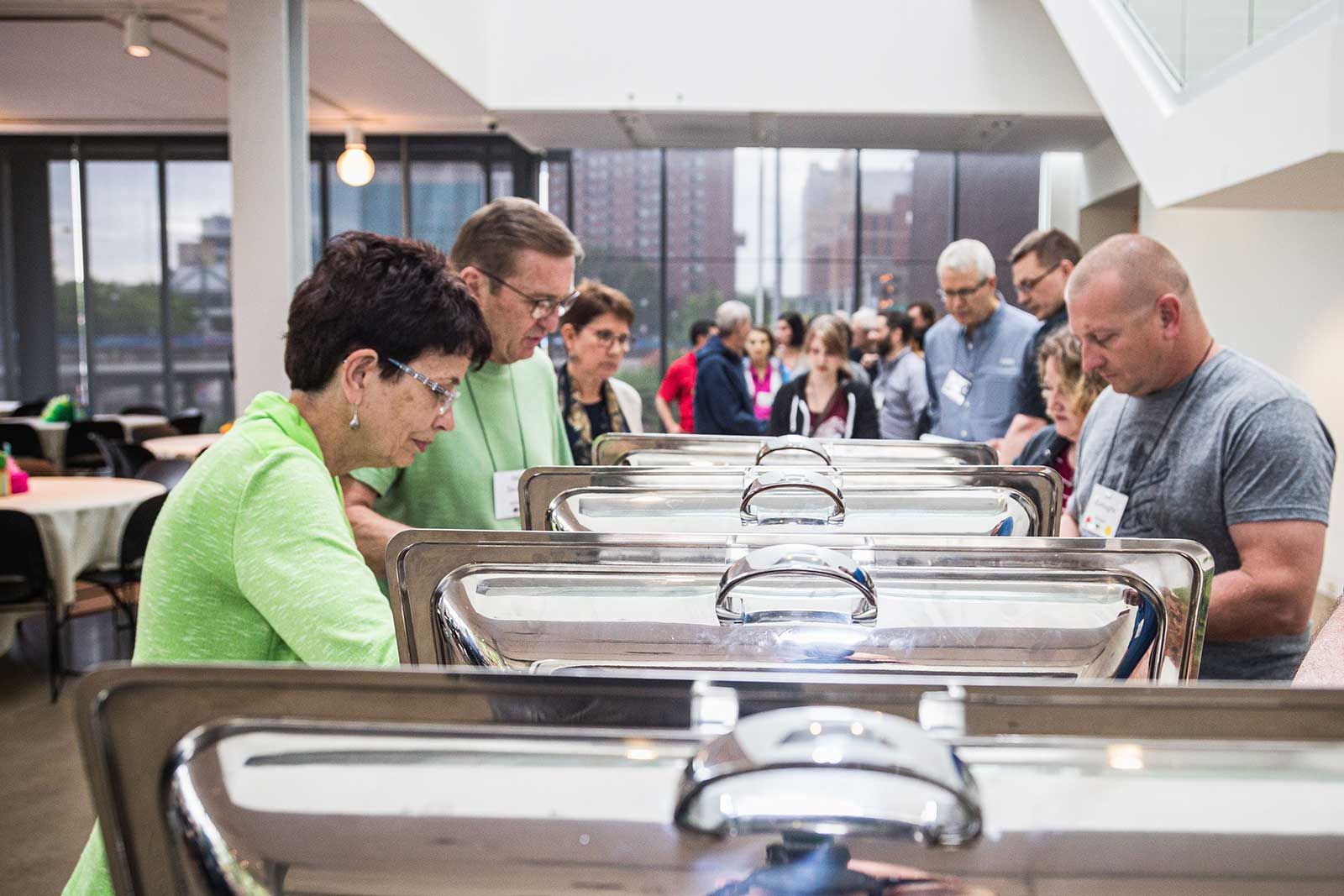Nutrition
There is no specific PSC diet and most patients do not have to make any changes, except to continue to eat in a healthy, sensible way. However, many PSCers have related digestive issues, such as ulcerative colitis and other gastrointestinal problems, and need to stick to a specific diet, as advised by professionals.
Liver and Your Diet

As PSC progresses, your liver may not be able to process nutrients and toxins as it could when you were healthier, and you may be advised to modify your diet to accommodate your condition. Generally, PSC dietary advice aims to reduce stress on the liver, which may lessen some of the symptoms of liver disease.
- You may be asked to reduce your intake of sodium, and monitor your potassium, cholesterol, and other nutrients, including vitamins and minerals. Be sure you know exactly which foods and nutrients you need to avoid or add to your diet. Learn how many calories you need to maintain your weight, and how many you need to reach your goal, whether to gain or to lose weight.
- Sodium/salt reduction will help to reduce fluid build-up in the abdomen (ascites). You may also need to restrict your fluid intake. Carbohydrate metabolism is also altered in liver disease, which can lead to increased blood sugar. You may be told to cut down on simple sugars in your diet. A low-fat diet is often recommended, as well.
- If you also have kidney disease, other specialized dietary changes will be necessary. Your doctor and nutritionist/dietitian will help you develop a plan that meets your personal needs.
- Diet issues can be confusing because patients are generally not trained to sort out the complexities, especially with regard to PSC and its related diseases. Well-meaning information from non-professionals, such as friends, other patients, advertisements, etc., should be checked with your doctor or nutritionist/dietitian.
- You may need assistance working through and understanding the importance of certain diet changes. In certain situations, some prescription medications can alter appetite and food metabolism. Your specific diet, if you need one, may not be the same for another PSC patient. Each person is unique.
Professional Expertise

Nutritionists:
- Ask your specialist to recommend a nutritionist who is knowledgeable about the technical aspects of liver disease. Generally, these specialists are found in large and/or teaching hospitals, and are registered/licensed dietitians who are certified in medical nutrition. PSCers advise that dietary advice from a hospital-related professional will likely be the most precise for PSC. Not all independent dietitians or nutritionists have heard of PSC or understand the complexity of the disease.
Dietary Supplements:
- Some PSCers say they find relief from symptoms if they take certain dietary supplements. If you decide to try supplements, you ought to research them thoroughly, and ask your doctor before you decide to take them. Formal research on dietary supplements and PSC is limited. Some supplement manufacturing practices may not be consistent or safe. Some supplements can be toxic to the liver, and you can inadvertently harm it further. Certain herbal products that are OK for healthy people may be harmful to someone with liver disease.
Healthy Eating Presentation
Nutrition for PSC/IBD:
- At our 2019 annual conference with Mayo Clinic, Rochester, Nickie M. Francisco Ziller, R.D.N., L.D., Mayo Clinic, gave a presentation on Nutrition for PSC/IBD patients. Watch the conference presentation.
Nutrition and Healthy Living:
- At our 2009 annual conference with Northwestern Feinberg School of Medicine, Beth Doerfler, MS, RD, presented a session on Nutrition and Healthy Living. Download the conference presentation. She offered three handouts: a grocery list, meal ideas, and snack ideas. See the lists below.
Remember, your physician or nutritionist may modify your diet to fit your unique medical situation. If you make a change in your diet on your own, be sure to ask your doctor about the safety of your new approach.
Healthy Eating Grocery List
| WHOLE GRAINS | PROTEIN FOODS/DAIRY PRODUCTS | |
|---|---|---|
| Whole grain white bread | Canned tuna, chicken, salmon (packed in water) | Eggs/egg whites |
| Oat bran bread | Tuna or chicken kit (low fat) | Egg Beaters™ |
| Whole grain crackers | Crab | Cheese (low fat) |
| Whole wheat pita | Salmon | String cheese |
| Whole wheat English muffin | Sardines (in water) | Cottage cheese (low fat or fat free) |
| Whole wheat tortillas | Shrimp | Skim milk |
| Corn tortillas | Skinless, boneless chicken | Calcium fortified soy milk |
| Whole wheat pasta | Skinless, white meat turkey | Yogurt (light or fat free) |
| Instant brown rice | Lean chicken/turkey sausage | Whey/Soy protein powder |
| Bulgur | Boneless pork chop | |
| Barley | Boneless pork loin | |
| Potatoes/Sweet potatoes | Lean ham | |
| Peas/Corn | “Round” or “loin” beef cut | |
| Popcorn | Hummus | |
| Whole grain waffles | Soy meats/veggie burger | |
| Whole grain cereals | Edamame (soybeans) | |
| Oatmeal | Peanut butter | |
| Ground Flax Seed/Flax oil | Raw nuts |
| FRUIT* | VEGETABLES (FRESH OR FROZEN)* | MISCELLANEOUS |
|---|---|---|
| Apples | Artichokes | Herbs/spices |
| Applesauce (no sugar added) | Asparagus | Pre-minced garlic |
| Apricots | Broccoli | Vinegars |
| Bananas | Brussel sprouts | Lemon/lime juice |
| Blueberries | Cabbage | Low cal salad dressing (≤50cal/2 Tbsp) |
| Cantaloupe | Carrots | Mustard |
| Cherries | Cauliflower | Spray butter |
| Grapefruit | Celery | Cooking Spray |
| Grapes | Cucumber | Benecol™/Take Control™/Smart Balance™ |
| Honeydew | Eggplant | Sour cream (low fat) |
| Kiwi | Green beans | Cream cheese (low fat) |
| Mandarin oranges | Onions (all) | Vegetable oil (canola/olive) |
| Mango | Hearts of palm | Avocado |
| Nectarine | Jicama | Splenda™, Equal™ |
| Orange | Kale | Disposable tupperware/plastic bags |
| Papaya | Leeks | Condiments: Sugar free jam, mustard, low fat mayo |
| Peach | Mushrooms | Carbonated water/seltzer |
| Pear | Mustard greens | |
| Pineapple | Okra | |
| Plum | Pea pods | |
| Prunes | Peppers (all) | |
| Raspberries | Romaine/mixed greens | |
| Strawberries | Spinach | |
| Tangerines | Squash | |
| Watermelon | Tomatoes | |
| Individual fruit cups (No added sugar) | Turnips | |
| Vegetable soup/minestrone | ||
| V-8 or tomato juice (low sodium) | ||
| Zucchini |
Healthy Breakfast Ideas

Breakfast is the most important meal of the day. Not only does it give you energy to start a new day, but breakfast is linked to many health benefits, including weight control and improved performance.
Studies show that eating a healthy breakfast can help give you:
- A more nutritionally complete diet, higher in nutrients, vitamins and minerals
- Improved concentration and performance in the classroom or the boardroom
- More strength and endurance to engage in physical activity, and lower cholesterol levels
Whole grain + Lean Protein + Fruit/Vegetable = A well-balanced, high-energy breakfast with a healthful combination of fiber, vitamins, minerals, and antioxidants.
To make a healthy breakfast, choose one item from each column.
| WHOLE GRAIN | PROTEIN | FRUIT/VEGETABLE |
|---|---|---|
| Quaker Oat Squares™ (3/4 cup) | Skim or soy milk (1 cup) | Berries (1 cup) |
| Oatmeal (1/2 cup) | Low-fat yogurt (1 cup) | Apple (1) sliced and peeled |
| Cream of wheat (1/2 cup) | Chopped walnuts (2 Tbsp) | Grapefruit (1/2) w/ Splenda |
| Whole grain white bread (1 slice) | Peanut butter or almond butter (2 Tbsp) | Banana (1 small) |
| High fiber/whole grain bagel (1/2) | Lox (1-2 slices), low-fat cream cheese (2Tbsp) | Tomato and onion |
| Whole grain waffle (1 slice) | Skim or soy milk (1 cup) | Strawberries (1 cup) |
| Whole grain pancake (1) | Soy or turkey sausage (3 links) | Melon (1 cup) |
| Corn tortilla (1) | Scrambled egg beaters™ or egg whites (1/4 cup) | Avocado (1/2) |
| Avocado (1/2) | Melted low fat cheese (1 slice) | Tomato and cucumber slices |
| Cheerios (1 cup) | Skim or soy milk (1 cup) | Applesauce w/ cinnamon (no sugar added) |
Note: If you don’t have time to fix breakfast, consider a protein bar or protein shake with a serving of fruit
Protein bars: SlimFast™, Balance™, Pria™, Zone Perfect™, Luna™, Lara™
Protein shakes: SlimFast™, Glucerna™, Carnation Instant Breakfast™
Healthy Lunch/Dinner Ideas

Whole grain + Lean Protein + Fruit/Vegetable = A well-balanced, high-energy meal, which includes a healthful combination of lean protein with fiber, vitamins, minerals, and antioxidants.
- To make a healthy meal each day, choose one item from each column
- Enjoy adding heart healthy fats such as olive oil and avocado to your fruits and vegetables to increase flavor and nutrients
- Peeling and cooking fruits and vegetables helps to improve your tolerance for fiber
| WHOLE GRAIN | PROTEIN | FRUIT/VEGETABLE |
|---|---|---|
| Whole grain white bread (2 slices) | Turkey breast (3 oz) | Tomato and lettuce, baby carrots |
| Instant brown rice (1/2 cup cooked) | Firm tofu, cubed (3 oz) | Steamed broccoli and tomatoes with 1 tbsp olive oil |
| Corn tortillas (1-2, 6″) | Part-skim mozzarella (1 oz shredded) with pureed black beans (1/2 cup) | Salsa or 4 oz tomato juice |
| Pasta (1 cup cooked) | Skinless chicken breast slices (3 oz.) | Tomato sauce |
| Instant barley (3/4 cup) | Lean ground turkey (3 oz) | Sautéed mushrooms and fresh tomatoes |
| Instant wild rice (3/4 cup) | Grilled whitefish (4 oz) | Steamed carrots and cilantro |
| Quinoa (3/4 cup) | Toasted almonds/walnuts (2 Tbsp) | Mixed vegetables |
| Whole grain white bagel (1) | Melted low fat cheese (1 slice) with tuna fish (3 oz mixed with lite mayo or mustard) | Spinach, tomato and cucumber slices (peeled) |
| Whole wheat pita (1) | Hummus (1/4 cup) | Lettuce, tomato, cucumber |
| Baked sweet potato (1 medium) | Grilled turkey sausage (1) | Grilled asparagus spears |
| Whole grain crackers (6) | Pureed Lentil soup (1 cup) | Melon (1 cup diced) |
SNACK IDEAS (100-200 calories)

- Low Sodium V8 (4 or 8 oz)
- Artichoke Hearts out of the Can
- String Cheese (Sargento Light = 50 calories)
- Whole Grain English Muffin (1/2) and 1 slice low fat cheese (veggie slices = 35-40 calories)
- La Tortilla Factory whole grain tortilla or whole grain pita (1) and 2 tablespoons hummus (Oasis roasted red pepper hummus = 25 calories for 2 TBSP)
- Low Fat Cottage Cheese (4 oz serving) with fresh tomatoes
- Jicama Slices with Lime
- Peapods
- Grape Tomatoes
- Edamame
- Soynuts (handful)
- Unsalted Nuts (walnuts, cashews, almonds, pepitas) a handful ¼ c = 220 calories
- Peeled Cucumbers with Laughing Cow Cheese Light
- Reduced Fat Triscuits or All Bran Crackers (18 = 120 calories) with Laughing Cow Cheese Light
- Mini carrots and/or celery with low fat dressing
- Whole grain crackers (RyKrisp, Wasa, Rice Cakes) with Laughing Cow Light and/or turkey slices, tomato/cucumber/ mustard
- Orville Redenbacher mini bag of popcorn (100 calories)
- Low fat cottage cheese (4 oz individual pack) with:
- an individual fruit cup (no sugar added)
- cinnamon and Splenda
- Pack of low sugar oatmeal
- Yogurt (Stonyfield Farms or Okios Greek Yogurt = 120-150 calories):
- yogurt and 1 tablespoon nuts
- yogurt and 1 tablespoon of bran cereal
- yogurt and a handful of berries
- yogurt and Vitamuffin (80 calories)
- Applesauce (no sugar added)
- Banana
- Drinkable light low fat yogurt (Dannon Light n’ Fit Smoothies)
- Low fat pudding with Cool Whip (Jello pudding cups = 60 calories)
- Sugar Free Jell-O cups with Cool Whip
- Pear or apple with Laughing Cow Cheese Light (1 wedge = 35 calories)
- Apple with 2 Tbsp of Better N’ Peanut Butter (2 TBSP = 100 calories)
- Fiber One Chewy Bars (Oats and Peanut Butter OR Oats and Chocolate = 140-150 calories)
- Nature Valley Fruit Crisps – Cinnamon Apple (1 pouch = 50 calories)
Complete your profile and join PSC Partners Seeking a Cure in advancing PSC research towards a cure. Find information about clinical trials.






